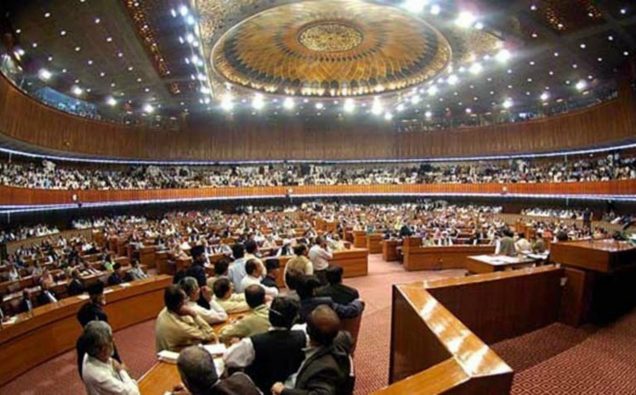
A day after Nawaz Sharif relinquished prime minister’s office – in line with a Supreme Court verdict in a corruption case– Pakistan seems to have averted political instability. Sharif’s brother Shahbaz Sharif, a longtime chief minister of the largest and most influential Punjab province, will succeed the PML(N) leader as the new prime minister. In the interim, Shahid Khaqan Abbasi, a former minister, will perform duties as prime minister for 45 days.
The latest developments also reflect on Pakistan’s maturing democracy, where democratic transition has minimized the possibility of a standstill in governance or a standoff between institutions. Such events created a lot of political and economic instability in the 1990s, eventually resulting in 1999 military takeover.
This week Pakistan’s Supreme Court ruling against Prime Minister Nawaz Sharif and members of his family, while not altogether unexpected, was a decisive verdict in the wake of a long-running anti-corruption case in Islamabad. While the that case is now decided, it leaves up in the air at least three longer-term questions: the direction of the government once the Prime Minister’s job is filled; the future of Sharif as a political figure after more than three decades as a force in Pakistani politics; and, the impact on foreign affairs involving Pakistan, India, China, and the United States.
Supreme Court Judge Ejaz Afzal Khan, on the Court’s decision against Sharif, as saying, “he is no more eligible to be an honest member of the Parliament, and he ceases to be holding the office of Prime Minister.” Following the court’s ruling, the three-time incumbent of Pakistan’s highest office resigned, saying he had “serious reservations” about the judicial process that had worked against him, but would step down.
The court – unanimous in its verdict – swept up three of Sharif’s children in its decision, ordering the start of wider criminal investigations based on findings that family members had been “living beyond their means” by purchasing costly London apartments. Court proceedings hinged on disclosures last year in bank documents leaked from a Panamanian law firm, Mossack Fonseca, that named the three children – Maryam, Hasan, and Hussain – but not their father. Sharif’s defense attorneys offered documentation to show their client’s legitimacy in the use of family funds, but prosecutors – and the Supreme Court – found the Prime Minister at fault in one of the hardest-hitting scandals in Pakistan in decades.
The impact on US-Pakistan relations of the resignation of Sharif will take a while to unfold. The government in Islamabad will continue to be led for at least a year by Sharif’s ruling party, with an interim successor holding power until scheduled elections in mid-2018. Between now and then it’s not likely there will be major policy changes between the two countries, but international observers have voiced concern that current bilateral policies are headed downhill.
- The Trump administration has made no secret of its upbeat relationship with India, capped off at the end of a Washington visit in late June by Delhi Prime Minister Narendra Modi with a widely photographed embrace between the US and Indian leaders. The Pakistani Foreign Ministry called the Indian Prime Minister’s visit “singularly unhelpful” in achieving peace in South Asia, aggravating “an already tense situation.” The border dispute over Kashmir continues to cast a shadow over all other policy issues, including with the US.
- Pakistan’s top foreign affairs adviser, Sartaj Aziz, had warm talks in Islamabad in June with China’s visiting Foreign Minister, Wang Yi, telling reporters that “Pakistan’s relations with China are the cornerstone of our foreign policy.” Wang responded by thanking Pakistan for being “at the front line of the counterterrorism fight” in South Asia. This movement toward Beijing, creating further distance in relations with Washington, has been noted by the Trump administration – which, itself, is working to re-cast its bilateral economic and political relations with China.
- The dispute over issues regarding terrorism is complex, and is not likely to be resolved any time soon. The US has been increasingly concerned for the last several years about allegations by American, Afghan, and some international figures that Pakistan is harboring insurgents who carry out cross-border raids into Afghanistan. Such accusations were mounted during the Obama presidency, and have only sharpened during the first months of the Trump administration. Pakistan has responded by noting major terrorist attacks in its largest cities, citing them as evidence that it is a victim, rather than a safe haven, of terrorists.
A further complication – well-known, but always in the background during debates on foreign policy issues – is that the US, India, Pakistan, and China all have nuclear arsenals. This creates ominous overtones for any long-term strategic discussions, and is an added stimulus to any efforts to promote better relations between the four countries.
The resignation of Nawaz Sharif – and its potential for destabilizing relations in the region – may, or may not, have an immediate impact outside Pakistan. Events in the months to come, including the rhetoric mounted during the election campaign, already well underway – and the volume of the charges and counter-charges between Islamabad and New Delhi – will determine the policies and actions to be considered in Beijing and Washington.

















